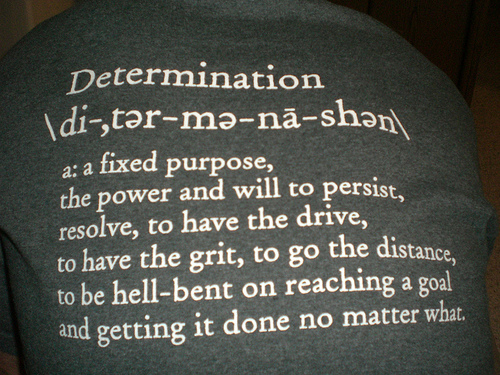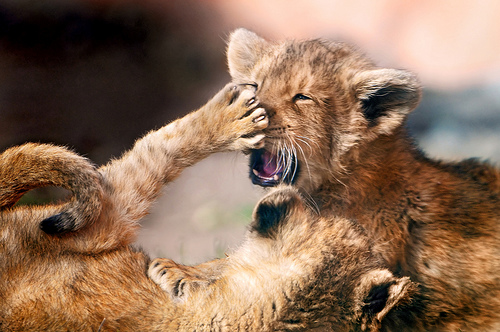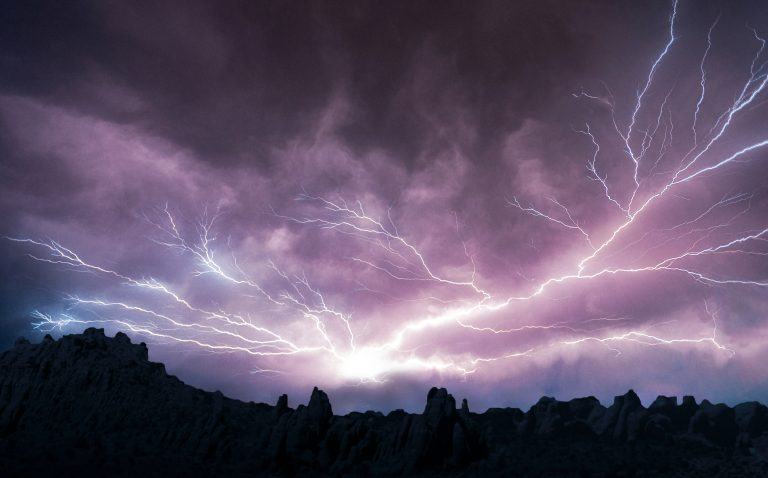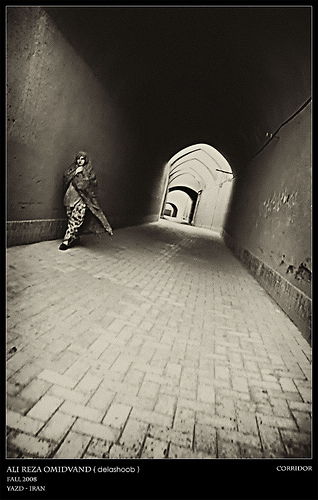Writing for an Audience Can Be Dangerous
I think the best way to survive and thrive in this writing life is to examine our motivation. If we take a look at why we write and how we feel about our writing, it will give us insight into our joy. A person who writes just for the sheer love of writing and has no interest whatsoever to do anything with her writing is going to find a simple, satisfying joy in her writing. A lot of people feel that satisfaction through journaling each day. But we authors start getting caught up in the nets of despair the moment we start thinking of audience. One author friend said this to me (before I got published): “You don’t ever find that true happiness in your writing until you have an audience. It’s the connection between writer and reader that brings a sense of fulfillment and completion.”
I truly get what she’s saying. I didn’t quite understand it then, but now that some of my books are published and I have fans that love my books, I have found truth in her words. I don’t actually write for my readers–I really do write for me, in the sense that I love writing and I need to express my creative drive through this process. But there is something other about reaching a reader who feels your book has touched or changed them. All of a sudden you’re not just writing because you love it; you’re affecting people!
The Need Can Turn Ugly
Unfortunately, that’s both a blessing and a curse. There’s a trap in developing a need or longing to have readers adore your writing. For, if you get a bad review, it will really ruin your day. I often think of an author I know who came out with her debut novel last year. It immediately went into best-seller status and won lots of awards. She had about two hundred four- and five-star reviews on Amazon and only a small handful of two-and three-star ones. I decided to read it since the topic intrigued me, but I really disliked the book. It was not all that badly written, but there were so many plot holes (I was shocked her big-time publisher didn’t catch any of these!) and, more importantly, the book gave a very disturbing message that offended me greatly. So I posted a two-star review–an honest but polite one–saying basically these things. Most authors know they’ll get a few bad reviews. They know they can’t please everyone. Most authors would shrug and say, “Oh well. My book’s a big seller and award winner. So what if a few people don’t like it?”
But this author sought me out, somehow found my e-mail address, and wrote to me. Not just once but many times. At first she was polite and friendly and tried to persuade me to remove my review. Then the letters got more demanding, hostile, and she even enlisted other author friends to threaten me (in numerous ways). I was astonished and shocked. It wasn’t so much her immaturity that got to me; it was seeing how her joy was so easily destroyed by one not-so-complimentary review. I did eventually remove the review–not because of her pressure but because I felt that my actions were stumbling her, and since I’m a Christian and I’m told not to stumble someone who is offended by my actions, I removed the stumbling block. It was no big deal to me. I wasn’t interested in an ego war, and I didn’t care if her friends all returned my novels back to the bookstore for a refund. Whatever.
The Clear and Present Danger
The point I’m trying to make with this example is that we can let our desire to please our readers turn into a need. And this need can get so tied up with our self-esteem that one bad review can . . . well, I just showed what it can do. I learned a tremendous lesson from that encounter. Actually, a lot of lessons. One being that I never want to become like that if I ever sell big. I want to be gracious, kind, accepting, and respect others’ opinions–even if it means they hate my books. But another lesson I learned is that there is a danger present when we let ourselves need an audience. So next week I’ll go into some of these types of motivations that make us yearn for an audience, and hopefully you’ll be able to figure yourself out a little bit. My belief is that the more we understand our inner motivation (what drives us to want to succeed), we can change it if it’s not serving us well.












Great post – thanks!
Keep writing…
Louise
http://www.misswrite.co.uk
http://www.facebook.com/louise.gibney.writer
@literaturelou
Enjoyed your post. As a recently published author, I pondered this same thing when someone commented that although she liked the novel, my hero was “too goody two-shoes” for her tastes, and another that she would like to see more romance for my hero. I firmly believe in “writing the book you would most like to read”, and I feel that if I want my hero to be a modern version of a Roy Rogers or the Lone Ranger, there must be readers out there who will enjoy such a protaganist as well.
R.E.Donald
Author of the Hunter Rayne highway mystery series
redonald.com
This was a great post. My first novel was published last November and although sales and reviews were slow in coming. both have started now. I received an awful review not too long ago and to be honest, I felt crushed that someone would think so little of my book. She wasn’t just saying that she didn’t like my book, she was quite nasty, saying my story was moronic and that her grade school child could have written a better book.
A friend of mine helped me put these reviews into perspective by sending me to Twilight’s amazon page where I read some of the 1 and 2 star reviews. I absolutely adored these books and yet there were people out there who hated them.
I then had to ask myself, who am I to be offended at one or two bad reviews when a book as popular as Twilight had hundreds of them?
You can’t please everyone.
To go back to your original topic, I don’t write just for myself. I enjoy doing it, but enjoy it BECAUSE others will read what I had to say.
Nicely crafted. If we will hear the truth and let it sink into us, we will all be better writers as a result.
I wanted to share that my son once produced a cool comic book in the 80s called “Rib”. It was all the rage at the time. All his reviews were super from folks all over the globe. However, the President of Harris Comics decided that this kid was too young for all of these accolades. HE CALLED OUR HOUSE (A man in his 50s) and railed on my son (All of 19) all but calling him a liar. “There is no way you got all good reviews. You must have gotten a few bad ones, I’m sure.”
What was this IDIOT up to? He was the professional acting like a child to call the house and rain on my son’s parade. My son was posting every review he had gotten. He said “I would publish a bad review, if I had gotten any.” He never did. NOTE: Why didn’t this President of a company post his own bad review, that would have been better, but he never did. This didn’t stop my son, but it left a bad taste in his mouth for certain parts of the Comic Book Industry. Today my son writes for D.C. Comics. LOL Go Figure!!!
Where eagles fly,
Don (Greywolf)
Native American Storyteller
Author of “Royal Ferdinand” at Amazon/Kindle
What a great post! I, too, write for myself but I think even if you do write for an audience, you’ll still get a handful of bad reviews because some people just like to trash a book no matter what.
Good Morning, I was just about to post my review to your page when I caught sight of the title…an excellent article! And I’m glad you personally had this experience as a writer and shared it with other writers…
Now you know the agony of a book reviewer who loves books and also hopes to have it used in the marketing effort…that’s why I do it…but, then, I’ve been accused that I’m not really a reviewer since I’m biased…
Do I know you? Of course not, but I’ve reviewed two of your books and have begun to know a little “about” you…so why would I ever be biased to give you a good review? The Spock in me always responds…It is not logical…
But, still, I do hesitate to write a review when a book is less than great. I just finished one by Patricia Cornwell which I felt was clearly hurried and even felt “incomplete.” While she’s a favorite author, I was disappointed. Do I write a review, express my thoughts? For what purpose?
I’ve also been criticized as you were for giving low rankings (which is another whole issue for me) and am ultimately forced to either defend my opinion extensively or take my review off on the sites where rankings are used…
My point is that the rankings are the problem. When I’ve given a poor or bad review and shared it privately, it is normally fairly well accepted. But when we are forced to “rank” it, the whole issue becomes overblown, whereas reading the words are potentially seen as constructive criticism.
With all the reality shows that pits singers, dancers and even weight losers against each other, we have evolved to a world where we cannot easily speak the truth or our version of it. Your review, for instance, was, I am sure, constructive criticism–but there are so many others out there ranking low for some unimportant, personal reason…it’s like apples and oranges… If only we could ensure that personal choice was secondary in reviews, there would be a major difference in the whole process! Not that that is going to happen! LOL
Best
Glenda
Well said! I think many writers will benefit from your post. I’m sure you will hear from many like-minded writers, myself included. Keep up the good word and maintain your healthy attitude.
Great post, giving us much to ponder! Thanks!!
I absolutely can’t believe that author harassed you so much about that comment. I feel badly for her. That’s the double-edged sword of having an audience – people may not like what you write. I’ve had stories of mine pretty much torn apart. You can’t get so ego-involved. Things must be tough for her.
Great post. I remember reading a blog by Jim Butcher, author of The Dresden Files, who commented on a review he got where he was called an amateur who couldn’t write for third graders. The New York Times multiple best seller said he felt like giving up at that point, and mind you this was after a dozen best sellers under his belt. I self published my first book on Amazon and Smashwords in January (actually put out two on January 1st). Now have six out. I knew the first book, The Deep Dark Well, was a very good and well written science fiction novel. I received a two page rejection letter from Tor in 2007 that stated it was a wonderful story, tightly plotted with great characters and was a page turner, but was too high for their market (and I looked up the term and found out it meant there was too much hard scifi in it). They passed on it because it was “not for their market,” which seemed to be space opera and Star Trek/Star Wars clones. So I got my first review on Amazon from one of their top reviewers, and when I saw the three stars I was devastated, since I had seen four and five stars on books I judged were nowhere near as good. I read his review and was surprised to find that he thought it was a good book, well paced, with characters that were introduced in a very natural manner. He ended the first paragraph with a statement that he would like to read more about these characters and this world. Then we got to the reason for the three stars. He thought my formatting sucked. I had put it up in almost perfect condition but the Amazon conversion to Kindle had mucked it up. Now I do my own conversions on my own computer and make sure it looks right on Kindle before it goes on. The second (and to date only other) review I received was a five star on the same horribly formatted book. That reviewer was more interested in the realistic way I presented technology with strengths and weaknesses, and how I presented a lot of detail in a natural manner, and it seemed he couldn’t care less about formatting. Two reviewers who both thought it was a good novel, from two different perspectives, and two very different ratings. I have cleaned the book up since then and hopefully will have no more reviews tainted by horrible formatting.
Thanks for all the great comments. One thing we learn in the writing journey is that reading is very subjective. There may be thousands of people who love a book I just can’t get into at all. I feel sometimes I’m a bit odd, as I often really dislike books that all my friends love. Sometimes it’s the premise or the writing; other times it may be the plot holes bigger than potholes! But my taste is my own and because of my pickiness, I respect that other people may not like my books. I’m glad my novels all get mostly rave reviews and five-star reviews, but it’s okay if some people really don’t care for them. I just write what’s in my heart and the stories I’m compelled to tell and hope they resonate with some readers out there. And that’s plenty good enough for me!
Wonderful post. Your articles are like a close friend or kind relative, encouraging and supportive. I look forward to them. Perhaps you could tell us in practical terms how to resist the dreaded sinking sand that pulls at so many of us between projects, when our head aches from its own emptiness and the wind whistles like smoke through a burnt out city between our ears.
Thank you. That’s what I’m trying to do in these posts this spring–to show ways to rethink success and find joy in the creativity of writing without allowing expectations to cause disappointment.
Thank you for your lucid thoughts.Your article and the replies thereto probably reflect the experiences in one way or another of many writers. Being ‘out there’ through publication makes us vulnerable and one must expect criticism. It depends on the spirit in which it is done. Constructive criticism can help us learn. A close family member was cruel in his dismissal (condemnation is probably a more appropriate word) of my memoir, my first published book. It hurt like hell for a very long time. Julia Cameron says in her well-known book, ‘The artist’s way’, there is only one way to get over destructive criticism and that is to heal from it. If not, there’s the real danger of becoming blocked.
I admire you for sticking to what you believe in… I would think I would have done the same thing. I have just begun writing, I would hope to be big enough to accept negative comments as well as positive… this is where one learns at (let me say this is ‘where I would learn at’.
I am going to stay true to myself and write, and not worry about an audience. Being ‘new’… I was thinking in terms of that from time to time… but, I know deep inside it’s so much ‘more than that’. I don’t want to forget that.
I was feeling overwhelmed by ‘writing for everybody’ to make them want to read… but, I realize I can’t do that… ‘this is mine’… my writing, my words writing about what only I know so well… I’ve experienced it all. I ‘know’ there are people ‘out there’ who have, also… they will recognize what I write about… if they comment or write me… then, I can learn from them as… all I’ve experienced, I’ve had to learn what to do each time… no one taught me.
When I was very ill with cancer… I never got to talk to anyone to know ‘what to expect’… I ‘listened’ to my husband ‘to learn’ … what he found out from talking to other family members. Thank-God, I had determination to live, wanted to live so much that ‘all I could see inside’ was me living, doing things I loved once again.
I didn’t mean for this to be lengthy… but, reading this article was…….. just special. I’m glad to have the opportunity to do so. Thank-you. Granny Gee/Gloria Faye Brown Bates
I’m sorry you removed the two-star review. I’m a Christian and I don’t see an honest, constructive review as causing someone else to stumble. The writer’s behavior was her own responsibility. It worries me that being nice can mean whitewashing the truth – in the end, the entire community suffers when people don’t grow up.
Be that as it may, I’m glad to discover your site and I love the “live-write-thrive” approach!
Judith
You know, it was more of a pride thing for me to be stubborn about removing that review. But i really felt led by God to do so (at 3 a.m.) and I felt a rush of peace at that decision. clearly God felt it would glorify him more by my removing the post and then explaining to the author and her cohort (who threatened to start a campaign to have all reviewers return my books to the publishers) my honest feelings about the whole ordeal. I do have to admit that I threw a few tactful barbs about being mature enough in the faith to allow for different tastes and opinions, but I know it was the right thing to do. However, I hope I will never become like that. I’ve had a negative review or two (surprisingly not all that many!), but my author friends and I look at a bad review as a initiation badge of honor. I’m not out to please every taste anyway. I write to a particular reader, and so if someone who does not like my style or theme inadvertently reads one of my books and hates it, why should that bother me?
My wheels were spinning as I read through to the end of this post. (I love that about reading blogs.) You can probably tell this is all relatively new to me so bear with me please. If I’m understanding correctly, there is a difference between writing TO your audience or writing FOR a specific audience vs. writing for the approval of said audience. If that’s accurate then I’d love to ask, what would you recommend when writing memoirs?
Thank you. And, as a side note, good for you for choosing obedience to the prompting of the Holy Spirit.
(…seek peace and pursue it. 1Peter 3:11)
Diana Denis
Thanks for sharing this. Sometimes I forget how socio(pathological) some people get over such things. The hornet’s nest of commenters is a bit freaky if you ask me. But there is a whole generation of kids who were weaned on the internet. It’s their caste structure and territorial pissing ground I suppose. I am as vulnerable as anyone when it comes to criticisms, but discrediting is just a bag of tar and feathers that people throw around. The criticisms that are well-founded are hard to take, if not impossible for some. I’ve never posted a negative critique of someone’s novel – I tend to stick with what I like and the rest… well, there’s just way too much of that to deal with. So I commend you for your courage, too bad it didn’t sink in. I guess whoever it was will just keep making the same mistakes over and over. That’s the definition of crazy right – repeating the same behavior and expecting different results!
I enjoyed your post. I too had an experience where I gave an author some private but less than postive feedback. He had asked me to post a review so I sent him a private email and pointed out some of the spelling and grammar errors (and there were enough that they spoiled the flow of the story for me) I couldn’t endorse a book with so many errors.
It turns out he only wanted positive comments for his sales page and I ended up offending him. It is so hard to be objective as we writers can be very sensitive.
There is no excuse for threatening emails though. That must have been tough to take. Good on you for taking it so graciously.
Great post and great thoughts on the matter because it is true. The truth is we often times write, whether it’s fiction or non-fiction because we have something to say, and something to share as it were. We write as a deeper expression of ourselves because, hopefully, there is some greater truth we want to explore. Not everyone is going to read that, and some people are not going to necessarily like it, but it’s not about them.
Always having loved to write, a number of years ago, when I was sick, my nurse, this wonderful woman, told me, when I write take the stories I know and write the endings I either know or the ones I want. Her point was a simple one, as far as I understood it: write for the love of writing, but let it hold some greater truth about yourself in it, do it to understand or to explain the world around you and the thoughts and feelings in you. Even thinking about that now I realize not everyone is going to like that. Even some of the people closest to me don’t always, not because it’s not good but because they want it to be something different, and, when it comes down to it, not every story is going to appeal to every person.
In the end you need to know why it is that you’re writing, and you need to know your audience, but you need to also know that you’re writing because you love to do it, and because you have thoughts you want to get out there, you have a story inside of you that you not only want to tell but that you believe is worth telling. The world is going to be full of those who like it, love it, and those who hate it, but what distinguishes a writer is the strength to weather the storms to find their voice and to put it out there and let their audience find them rather than writing for a specific audience.
There’s a difference between writing for an audience and writing out of a need for approval.
Writing for an audience means knowing who is going to be able to love and benefit from your book. A romance author gets no traction from writing for hard-boiled mystery fans. In mainstream fiction, the lines are less clear but just as important.
Writing for approval might be an even bigger danger for people who write for themselves. As someone who struggles with that (although I’ve never threatened anyone because of a bad review), I know that it’s when I write most transparently about myself that I’m most afraid of the rejection of my work.
When I write to improve the life or relieve the suffering of other people — whether through story or information — my ego is less tangled in the response. And if I’m writing for one group of people, I’m less likely to be offended if someone from a different group doesn’t like it or doesn’t relate to it. I can’t speak to everyone.
Thank you so much for sharing this. That’s horrifying how you were harassed, but you’re right–I’ve seen this happen to where a bad review almost destroys a writer. That happened to me with a family member. They hated something I wrote and they started sending me disparaging emails. I finally found a way to make it stop, but drained me so much I almost stopped writing.
I needed this reminder since I’m about to publish next week. It’s a hard balancing act, but one I hope I’m up to performing.
Loved this post!
Crystal
I’m curious as to whether or not her big time publisher was aware of her immaturity? Shouldn’t writers be adults and professional at all times?
Great post. I know a lot of people who get stuck in this web. And it’s just that..a web. The truth is, you gain an audience and you write better when you discuss what YOU are passionate about. Not what others want you to say. The writing is forced and you can tell in the tone.
As far as traffic, that can take time, yet again when you are in your element and writing about what you are passionate about, the audience that loves it too, will follow!
I find this post fascinating, but in a completely different manner I think.
I consider writing a performing art.
Journaling, fine. Writing for yourself fine. Doodling poetry in a notebook, great!
Once, however, you share that writing, it becomes a performance. Like any other art its very purpose is to be shared. The hope of its existence is to be appreciated.
Once you seek an audience you are no longer ‘writing for yourself’.
I’ve heard other book reviewers claim similar stories. Thanks for sharing this with me. And you’re right.
If someone gives my writing a bad review, I take it as they noticed my book enough to say something about it. At least they read my book. The way I see it is that to be a popular writer, you are going to have “haters” Look at the popular book series “Twilight” People bash Stephanie Meyer all the time. I criticize her for having sparkly vampires (ugh!) Plus I thought that Jacob was so much better than Edward! That does not mean I completely hate her writing or her series. Her books had some great parts to it also.
(can I guess who the writer was? Stephanie Meyer)
I doubt she would ever take the time to respond to her readers the way this author did to me. All writers should expect to get some bad reviews too. You can’t please everyone, and I’m confused at how and why so many mediocre and even horribly written books become best sellers. In Meyer’s books, though, what really bothers me is the editing or lack thereof. I’m appalled that writers who garner huge sales for their publishers are not given a team of proficent editors to correct all the mistakes in their writing. I’m reading another best seller right now by the author I refer to in my post, and there are sometimes 6-7 errors on one page, even though that book was published by Montlake, Amazon’s romance imprint. There just doesn’t seem to me to be any excuse for such sloppiness.